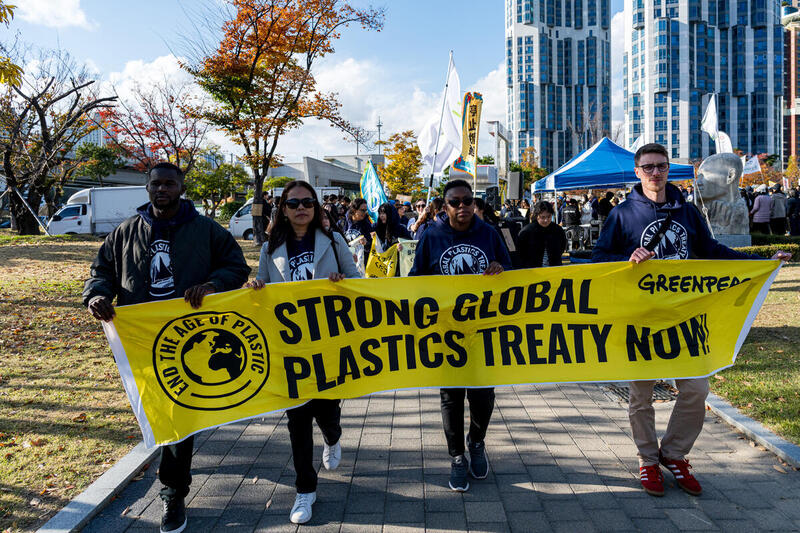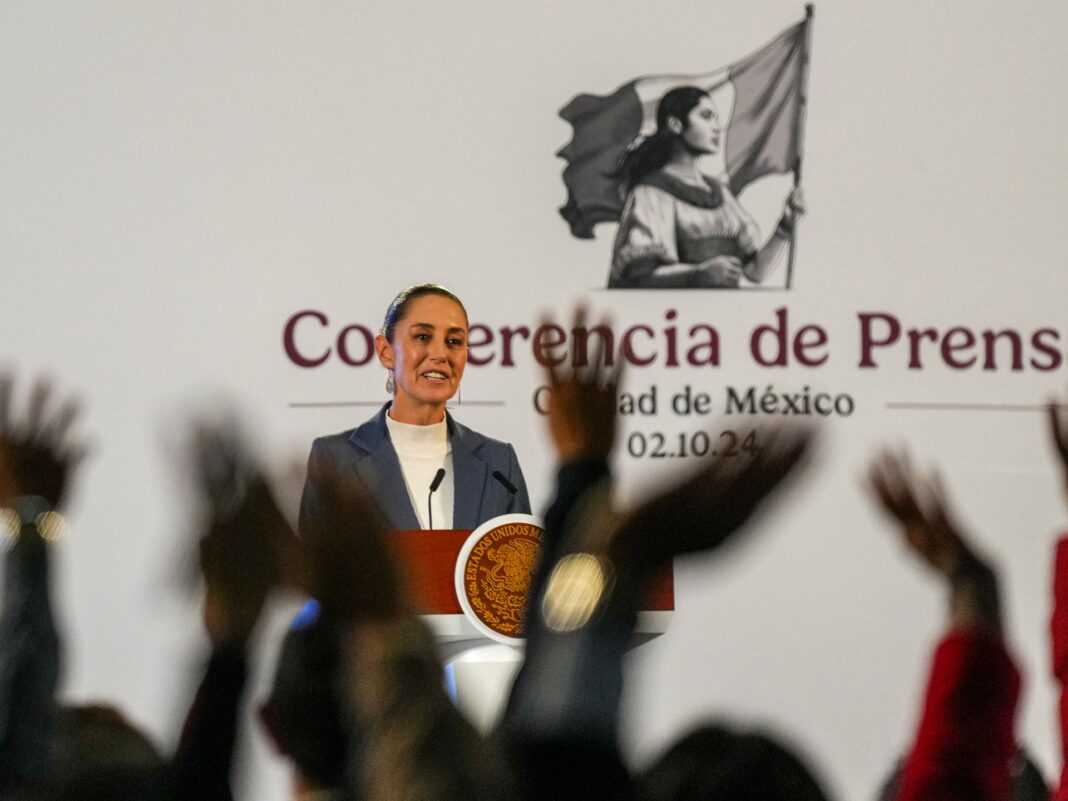Written by: Farah Al Hattab, (Lead Plastics Campaigner at Greenpeace Middle East and North Africa, based in Beirut, Lebanon) and Mohamed Kamal (Public Health Engineer and Director of Greenish Egypt, expert in plastics work over the past 7 years, based in Cairo, Egypt)
As the world gathers in Busan, South Korea for the fifth and final session of the Intergovernmental Negotiating Committee on Plastic Pollution (INC-5), Middle East and North African (MENA) countries stand at a critical juncture.
This pivotal meeting, from 25 November to 1 December, aims to finalize a legally binding global treaty to tackle the scourge of plastic pollution, and our region’s leaders must seize this opportunity to demonstrate leadership and commitment to environmental stewardship.
Why is there a plastic crisis?
Plastic pollution has reached crisis levels worldwide, with devastating impacts on our oceans, wildlife, and human health. Our region, with its extensive coastlines and rich marine biodiversity, is particularly vulnerable to plastic pollution, especially those whose livelihoods depend on the sea. Even worse, microplastics have been found in human blood, placentas, breastmilk, and other vital organs.
The massive plastic problem is not driven by societal demand, but rather by the incredible ease and volume of production that feeds excessive consumption of plastic products, making them cheap. Small, medium and large scale businesses rely on cheap plastics for their packaging.
This issue is compounded by the fact that giant multinational brands and producers choose to use single-use plastic packaging, especially for fast moving consumer goods (FMCGs). This problem is particularly prevalent in the MENA region which has the highest per capita plastic footprint, and where an average MENA resident releases more than six kg of plastic waste into the ocean every year, according to the World Bank.
Debunking false solutions: recycling
In an ideal world, countries such as Egypt, Tunisia, Morocco, the UAE, Lebanon, and Algeria would have perfect waste management systems. No plastic would be left accumulating in landfills, littering marine ecosystems, and infiltrating human bodies. However, the reality is different: For example, in Egypt, the biggest producer of petrochemicals in North Africa, only 12-15 percent of solid waste is recycled formally. Plastic recycling in Tunisia and Saudi Arabia is as low as 4 percent. However, the reality is different: less than 10 percent of the world’s plastic gets recycled, and there are real costs that are not truly reflected in the product’s price tag.
Studies reported that in recent years, the cost of plastic products, made from recycled plastic flakes, was higher than the cost of virgin plastic products, which are made using fossil fuels. This translates into smaller manufacturers, widely spread across the MENA region, being forced to turn their backs on recycled plastic and switch back to virgin products in order to cut on costs.
Proposed solutions such as chemical recycling and advanced recycling have barely shown any success and require substantive financing that many developing countries cannot afford. Additionally, reports indicate that chemical recycling has struggled to achieve high efficiency. As a result, the process tends to be resource-intensive, requiring large amounts of chemicals that could lead to the depletion of valuable mineral resources. Moreover, chemical recycling frequently demands substantial energy for generating heat, pressure, electricity, or microwave radiation, which may further contribute to climate change and pollution.
The complexity of waste management requires a robust governing system that can hold various stakeholders accountable, including those responsible for recycling. The failure of even a single stakeholder to fulfill their role can undermine the entire chain of responsibility. This includes both upstream processes, those in the plastic lifecycle that encompass all activities related to plastic production concluded at product design, and downstream processes, the trade and distribution of plastic products after production and before being purchased by the end consumer.
Looking at the experience of other regions, without sufficient upstream and midstream plastic regulatory and control measures, the negative impact of plastic products and waste will not disappear by merely improving waste management.
We cannot simply recycle ourselves out of plastic pollution.
Furthermore, there is a high health bill to pay for cheap plastics and its associated chemicals. Research across Morocco, Tunisia, Egypt, the UAE, and Oman has shown that fish consumed daily contain significant amounts of microplastics and, in some cases, macroplastics. Studies also found that humans ingest between 0.1 to 5 grams of microplastics weekly, raising serious concerns around endocrine disorders, cardiovascular problems, and reproductive issues.
Real solutions that shape a sustainable future
If there is one environmental problem we can realistically solve within our current global economic framework, it is plastic pollution. Numerous viable economic models can shift away from unnecessary plastic products.
What we have during INC5, is a once in a lifetime opportunity.
MENA leaders are urged to champion a strong and ambitious Global Plastics Treaty that reduces plastics production, bans single use plastics, and provides a financial mechanism that can ensure predictable and adequate support for the efforts needed. MENA leaders should not reduce their ambition or look at the short term implications only. They should take into account the bigger picture: ending plastic pollution and protecting our natural living environment.
Meanwhile, we as individuals and a society could put pressure on the plastic industry, challenging the dominant consumer-driven narrative.
A little over 50 years ago, before the rise of mass plastic consumption, we used clay pots and glass bottles for liquids in the MENA region, while ceramics, leather, and glass were primary storage materials. We had the concept of the attar—a one-stop shop for daily food products like legumes, vegetables, and dairy. In several MENA countries, people used to bring their own containers to purchase these products. We can modernize our traditional trade and packaging methods, not only reducing plastic waste, but also preserving our culture.
While these individual actions may seem small at first, collectively, they have the power to create a ripple effect. Over time, these shifts can not only reduce our personal environmental footprint, but also influence industries and big corporations to adopt more sustainable practices, ultimately reshaping the very systems that perpetuate overconsumption.
The opinions and ideas expressed in this article are the authors’ and do not necessarily reflect the views of Egyptian Streets’ editorial team.
To submit an opinion article, please email [email protected].


